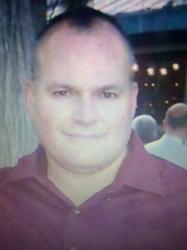Lee started weight training in 1969 at the age of 15. His source of inspiration was (believe it or not) his lack of size.
If you’re not a fan of Olympic Weightlifting, or a lifter yourself, you’re probably asking who Lee James is? It’s not surprising that one would ask because Olympic weightlifting has never been a particularly popular sport in America. Most USA lifters get very little recognition, and they don’t receive compensation for the countless hours they devote to the sport.
Such was the case with Lee James, who won the Silver Medal at the 1976 Olympic Games in Montreal. No American lifter has won an Olympic medal since except for Mario Martinez (Silver) and Guy Carlton (Bronze), who both medaled at the 1984 games in Los Angeles. But Soviet Bloc countries boycotted those Games, which diminishes their accomplishments when viewed through the lens of history.
Who is Lee James?

Lee is helping me adjust my starting position.
I first met Lee James in 1985 at a weightlifting clinic in York, Pa. Humble then as he is now, he’s a modest man with a strong faith in God and who speaks little of his achievements. Because of his temperament, I was afraid he might say no when I asked if I could write an article about him and his accomplishments. Thankfully, he graciously granted my request.
Born on October 31, 1953, Lee remembers watching all the movies about Sampson as a child and reading about Sampson’s mighty strength in the Old Testament. He hoped one day that he could be as big and as powerful as Sampson.
Lee started weight training in 1969 at the age of 15. His source of inspiration was (believe it or not) his lack of size. When he tried out for football at Westover High (GA), the coach told him he was so small that the team didn’t have a uniform that would fit him.
When Lee told his parents that he wanted to start weight training to gain weight and muscle, they purchased him a Bruce Randall (former Mr. Universe) 110-pound weight set for Christmas. Later on, he started weight training at the YMCA in Albany, Georgia.
Albany is where his family settled when Lee was eight years old. It was his third stop: Gulfport, MS (birthplace), Mobile, AL, and Gainesville, GA. With no one to coach him, he learned proper techniques from reading and studying photos in weightlifting magazines. He had plenty of stars to emulate, too. Two of them were Tommy Kono, a Gold Medalist at the 1952 and 1956 Olympics, and Norm Schemansky, Gold Medalist at the 1952 Olympics.

Lee at one of his first competitions
He entered his first competition in December 1970 and managed to Clean & Jerk 255 lbs. At the Teenage Nationals in Georgia, six months later, Lee Clean & Jerked 295 lbs, snatched 235 lbs, and pressed 250 lbs at the Teenage Nationals in Ohio. He weighed only 173 lbs.
Along the way, Lee mastered techniques. In Olympic Weightlifting, the objective is to lift the weight from the floor to the overhead position. The Snatch is completed in one motion. The other two lifts are completed in two movements. Because he was experiencing lower back discomfort, Lee was relieved when The International Weightlifting Federation eliminated the Press from competition shortly after the 1972 Olympics.
Lee continued making tremendous progress for someone who had no prior experience with weightlifting. He didn’t have a coach, either. He attributes his progress to the fact that he comes from an athletic family. His father, Lee Sr., played football, baseball, and boxed in high school. His sister was an outstanding softball and tennis player. His brother was good enough to be drafted by the LA Dodgers.
Lee Joins the Army
Lee’s lifting career was put on hold in 1972 when he joined the Army’s 101st airborne division. He wasn’t able to do any weight training during basic training, but once basics were over, he worked out at a gym in Port Campbell, KY. It wasn’t a good place to train, though. Barbells were bent, and climate control was nonexistent (no heat in the winter, no AC in the summer).
But it was better than nothing, so Lee made the best of it. He purchased squat stands and a sheet of plywood to use as his lifting platform. A friend, Carl Dougherty, lent him an Olympic barbell to use.
At that point, Lee was considering going to Ranger School. Instead, he accepted the Army’s offer to work temporary duty at the gym.
(Part 2 coming soon)














